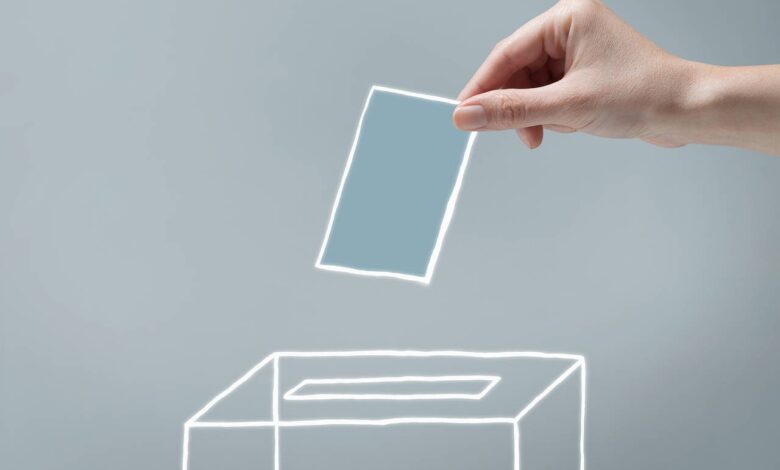Why Spain is Embracing Blockchain for Secure Voting
Discover why Spain is Embracing Blockchain for secure voting. Explore its role in transparency, security, and modernizing electoral processes.

The adoption of blockchain technology is transforming various industries worldwide, and electoral systems are no exception. Spain is Embracing Blockchain as a solution for secure, transparent, and efficient voting. This decentralized technology ensures the integrity of election results, prevents fraud, and promotes trust in democratic processes. By leveraging blockchain, Spain is setting a precedent for how elections can evolve in the digital age.
This article explores why Spain Embracing Blockchain for voting, detailing its benefits, applications, and potential to reshape the electoral landscape. From enhancing voter privacy to streamlining vote counting, blockchain’s integration into Spain’s electoral system demonstrates its commitment to innovation and democracy.
Read More: Why Spain is Embracing Blockchain for Secure Voting
The Challenges of Traditional Voting Systems
Understanding the limitations of conventional methods underscores why Spain is Embracing Blockchain for voting.
Traditional voting systems are prone to issues such as voter fraud, ballot tampering, and logistical inefficiencies. These vulnerabilities undermine trust in the electoral process. Blockchain addresses these challenges with secure, tamper-proof, and transparent voting mechanisms.
How Blockchain Ensures Secure Voting
Security is a core reason why Spain Embracing Blockchain for its electoral processes.
Blockchain’s decentralized and immutable nature prevents unauthorized access or tampering. Each vote is recorded as a unique, encrypted transaction, ensuring that results remain accurate and reliable.
Enhancing Voter Privacy with Blockchain
Privacy benefits demonstrate why Spain is Embracing Blockchain for secure voting.
Blockchain-based systems anonymize voter data while ensuring the authenticity of each vote. This balance of transparency and privacy fosters trust among voters and protects their personal information.
The Role of Smart Contracts in Blockchain Voting
Smart contracts illustrate how Spain is Embracing Blockchain to automate and streamline electoral procedures.
These self-executing contracts ensure that predefined voting rules are enforced automatically. This reduces human intervention, minimizes errors, and guarantees the integrity of the voting process.
Blockchain’s Impact on Voter Turnout in Spain
The potential to increase participation explains why Spain is Embracing Blockchain for voting.
Digital voting systems make it easier for citizens to cast their votes from anywhere. This accessibility encourages higher voter turnout, especially among expatriates and those with limited mobility.
Preventing Electoral Fraud with Blockchain Technology
Fraud prevention is a key reason why Spain is Embracing Blockchain for its voting system.
Blockchain creates an immutable record of every vote, eliminating the possibility of tampering or manipulation. This technology ensures that election outcomes reflect the true will of the people.
How Blockchain Streamlines Vote Counting
Efficiency in vote counting highlights why Spain is Embracing Blockchain for its electoral system.
Blockchain automates the counting process, providing real-time results with unparalleled accuracy. This reduces delays and enhances the credibility of election outcomes.
The Role of Blockchain in Remote Voting
Remote accessibility shows why Spain is Embracing Blockchain for secure and inclusive voting.
Blockchain enables citizens to vote securely from their homes or abroad. This flexibility ensures that all eligible voters can participate, regardless of their location.
Blockchain and Voter Registration Systems
Improved registration systems underscore why Spain is Embracing Blockchain to modernize its elections.
Blockchain streamlines voter registration by securely storing and verifying voter information. This reduces errors and ensures that only eligible citizens can cast their votes.
How Blockchain Promotes Transparency in Elections
Transparency is a vital reason why Spain is Embracing Blockchain for secure voting.
Every vote is recorded on a public ledger, accessible to authorized parties. This transparency fosters trust in the electoral process and ensures that elections are free and fair.
Blockchain’s Role in Reducing Election Costs
Cost-efficiency explains why Spain is Embracing Blockchain to modernize its electoral system.
By automating processes like vote counting and reducing the need for physical ballots, blockchain significantly lowers election expenses.
The Potential for International Collaboration Using Blockchain
Collaboration benefits highlight why Spain is Embracing Blockchain to enhance global democratic practices.
Blockchain allows countries to share best practices and innovations. Spain’s adoption of blockchain sets a benchmark for other nations, fostering international partnerships in electoral technology.
Challenges in Implementing Blockchain for Voting
The complexities of adoption reveal obstacles in why Spain is Embracing Blockchain for elections.
Technical challenges, regulatory considerations, and public skepticism can hinder blockchain implementation. Addressing these issues is crucial for its successful integration into Spain’s electoral system.
The Role of Government in Supporting Blockchain Voting
Government initiatives highlight why Spain is Embracing Blockchain for secure and modern elections.
Spain’s government supports blockchain through pilot projects, funding, and policy frameworks. These efforts ensure a smooth transition to digital voting systems.
The Impact of Blockchain on Electoral Integrity
Integrity is a primary reason why Spain is Embracing Blockchain for its electoral processes.
Blockchain guarantees that every vote is securely recorded and accurately counted. This technology strengthens the credibility of elections and reinforces public trust.
How Blockchain Encourages Youth Participation in Elections
Youth engagement explains why Spain is Embracing Blockchain, appealing to a digitally-savvy generation.
Blockchain-based systems resonate with younger voters familiar with digital platforms. This innovation bridges generational gaps and encourages active participation in democracy.
The Role of Blockchain in Emergency Voting
Emergency scenarios show why Spain is Embracing Blockchain to ensure electoral continuity.
Blockchain enables secure and reliable voting during crises such as pandemics or natural disasters. This technology ensures that democracy thrives, even under challenging circumstances.
Future Trends in Blockchain Voting Technology
Emerging innovations highlight why Spain is Embracing Blockchain as a long-term solution for secure voting.
Advancements like AI integration, decentralized identity systems, and enhanced encryption will further strengthen blockchain’s role in electoral systems.
Read More: Why Spain is Embracing Blockchain for Secure Voting
Conclusion
The transformative role of blockchain underscores why Spain is Embracing Blockchain for secure voting. By addressing challenges like fraud, inefficiency, and voter accessibility, blockchain ensures elections are transparent, inclusive, and trustworthy.
As Spain continues to innovate, its adoption of blockchain sets a global example for modernizing electoral systems. With the technology’s potential to enhance democracy, Spain is Embracing Blockchain as a critical tool for a fairer and more resilient future.
FAQs
1. Why is Spain embracing blockchain for voting?
Spain is embracing blockchain to enhance transparency, security, and efficiency in its electoral processes.
2. How does blockchain improve voter privacy?
Blockchain anonymizes voter data while ensuring authenticity, balancing transparency with privacy in electoral systems.
3. What are the challenges of implementing blockchain for voting?
Challenges include technical complexities, regulatory hurdles, and public trust in digital systems.
4. How does blockchain increase voter turnout?
Blockchain enables secure remote voting, making it easier for citizens to participate regardless of their location.
5. What future trends will shape blockchain voting technology?
Trends like AI integration and decentralized identity systems will strengthen blockchain’s role in modern elections.











